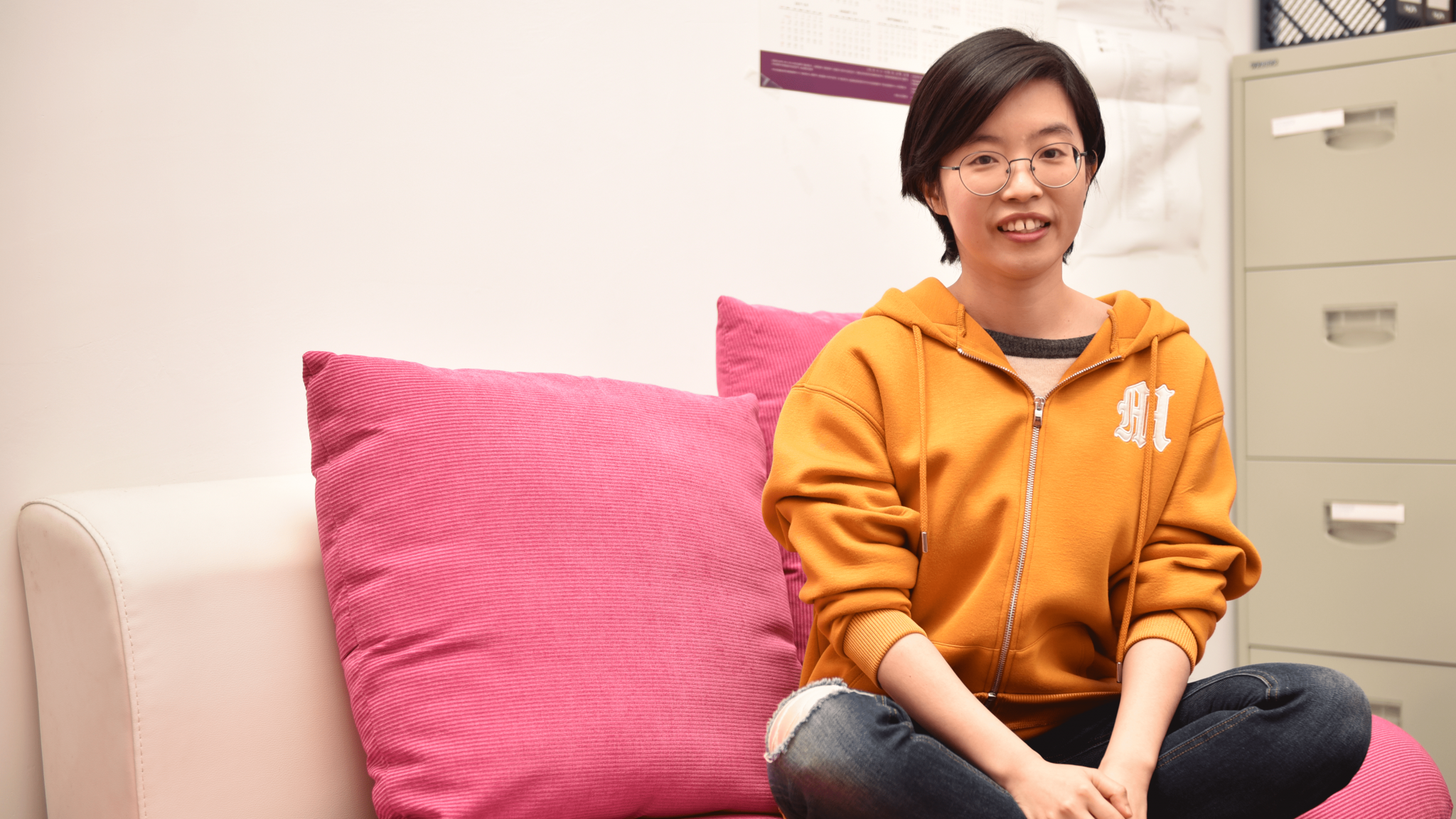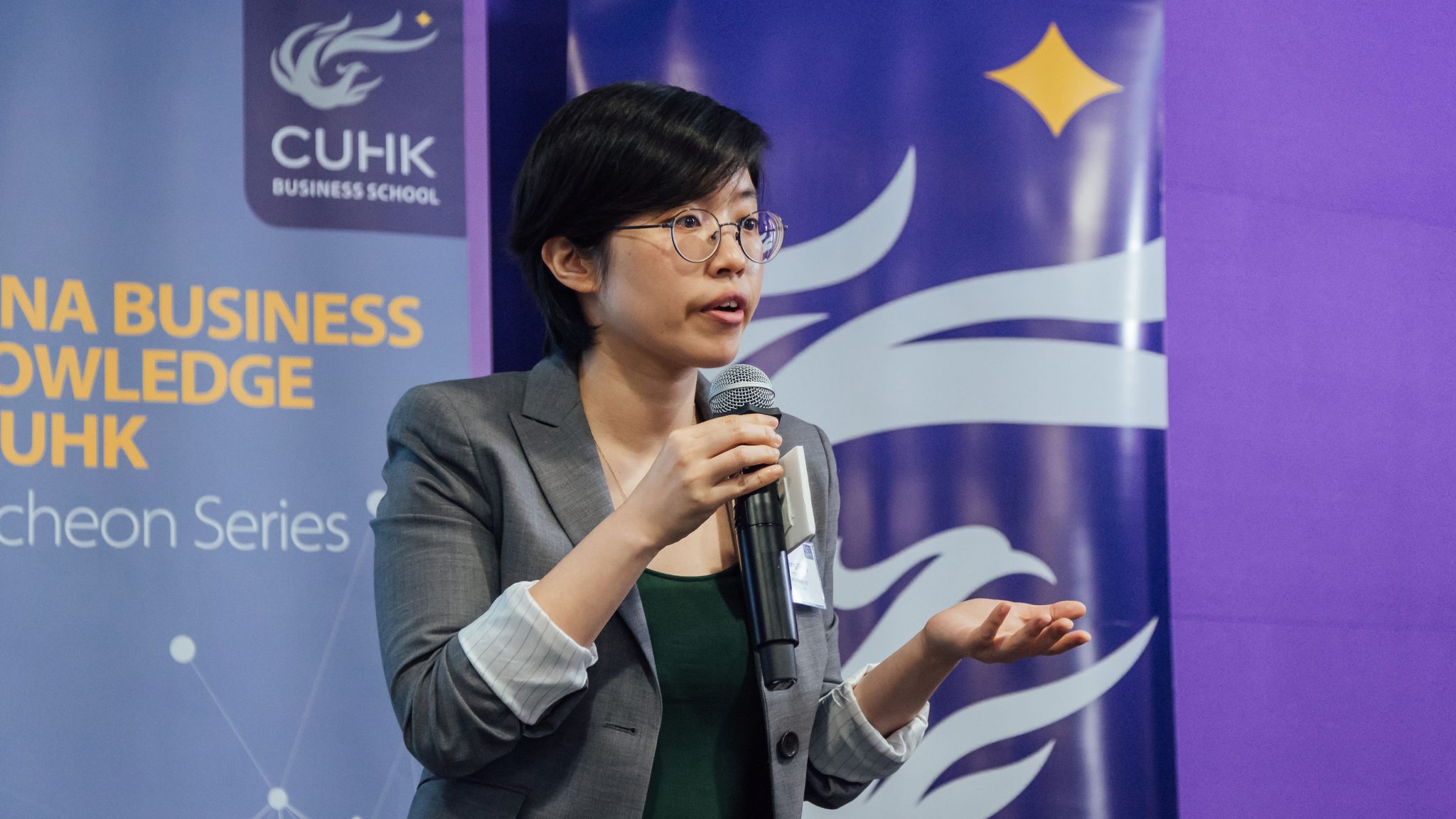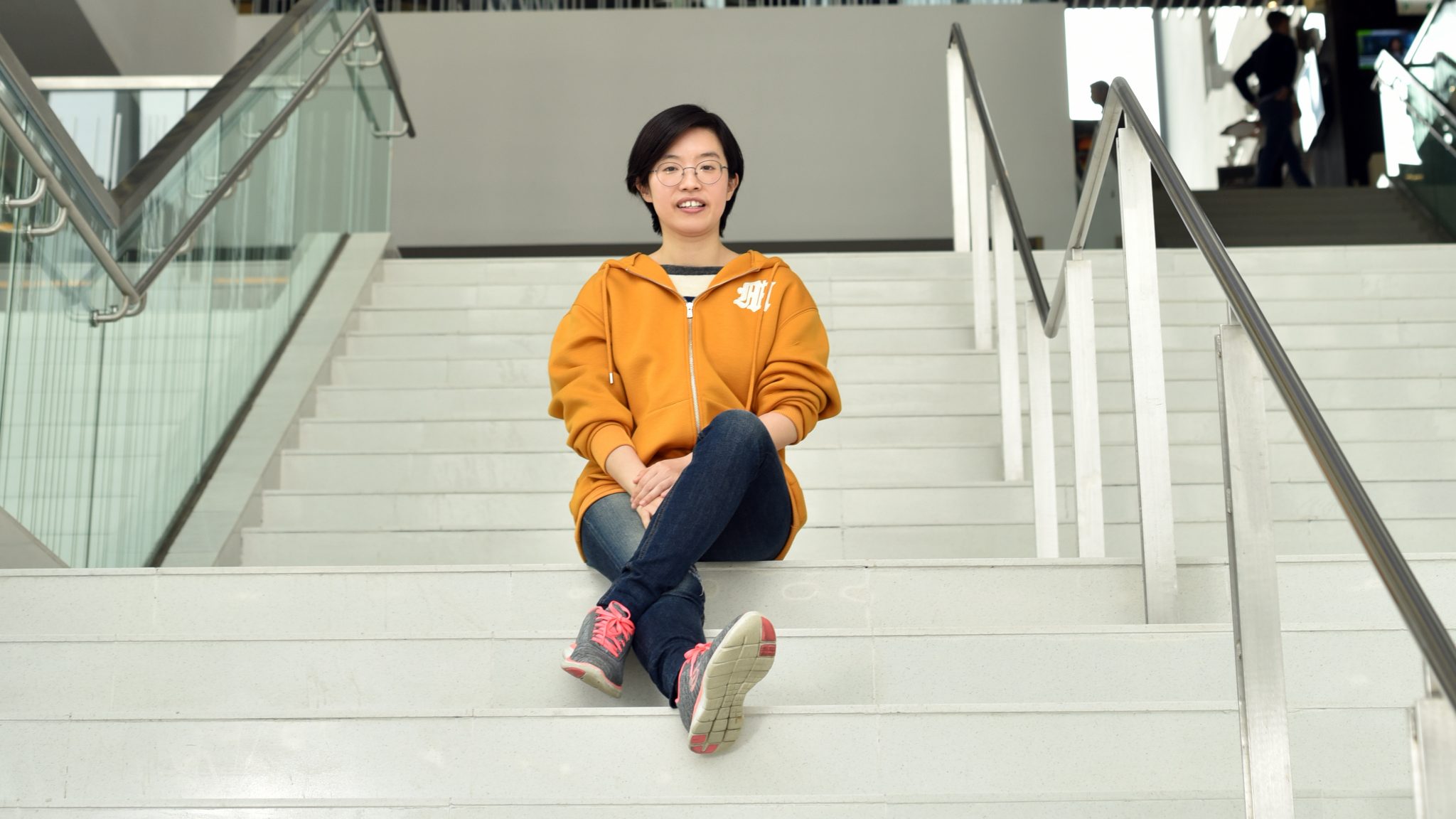Being Interesting is Key to Being a Great Teacher

If you brush shoulders with Prof. Tingting Fan in the corridor, chances are, you may pass her as one of the Business School students. She has such a youthful look and a frisky air about her, that it would be hard to believe she is a professor with several years of research and teaching experience under her belt, and a successful track record of helping students bring their business ideas to life – with great results, no less!
Meet Prof. Tingting Fan, the young scholar who joined The Chinese University of Hong Kong (CUHK) Business School in 2014 as an Assistant Professor in Department of Marketing. Her expertise lies in digital marketing, marketing management and new product management.
Prof. Fan’s educational pedigree hails from the New York University Leonard N. Stern School of Business, where she obtained her PhD in 2014. Prior to studying in the United States, she received her Master’s degree in Economics and Bachelor’s degree in Business Administration at Peking University.
In becoming a university professor, she has lived up to the aspirations of her family. She shares an insiders’ joke, “My mother was a kindergarten teacher and my father used to teach in elementary school. So we joked that if there was going to be another teacher in our home, she should be a university professor!”
In October 2018, she won CUHK’s University Education Award. The award is the university’s most prestigious award, recognising the exceptional work of faculty members who bring learning to life and inspire students to realise their full potential.
“Interesting things are all around you. You just need to discover them with an open mind. You also need put in some effort to find interesting things, which will in turn enrich your life.” —— Prof. Tingting Fan
Upon receiving the award, Prof. Fan felt a great sense of encouragement – not just for herself but for all the research-oriented young academics who might not believe they could properly balance teaching and research. “It proves that teaching can be fun and enjoyable and is worth the effort,” she notes.
In fact, “enjoyable” and “fun” are the keywords that describe her teaching style. How does she always manage to make her classes enjoyable and fun? Her unconventional reply, “By being an interesting person. A researcher’s life is quite boring, so being interesting is what makes my life – and my classes – fun,” she says.
As much as possible, she incorporates real-life examples and cases in her teaching so that her students are not just learning the theories but seeing how to put concepts to work in actual situations.
For example, she would talk to her students about how drug dealers ship cocaine from Columbia to the United States. “Not that it is a legal business, but still, it is a fascinating business, and there is a lot of marketing lessons we can glean from it.”
“Interesting things are all around you. You just need to discover them with an open mind. You also need put in some effort to find interesting things, which will in turn enrich your life,” she emphasises.
Outside the classroom, Prof. Fan is constantly on the lookout for interesting things to share with her students from a marketing standpoint. She finds her students more excited and active if she introduces topics not found in any marketing textbook.
Window shopping, for example, is a rich fodder for her teaching materials. She notes that the mall near the university – the New Town Plaza – attracts a lot of mainland tourists who cross the border and perform shopping sprees over the weekends. She also notices how shops switch out very frequently – an indicator of what is trendy at the moment and what has gone out of style in the eyes of the mainland consumer. This, to her, is a great way to study consumer behaviour and preferences of a specific market segment.
Another exciting exercise she has introduced to her students is to show them new films and ask them how they would predict box office sales, what data they would like to collect, and what model they would use. In the end, they will see which model of prediction is closer to reality.
When it comes to the subject of new production development, Prof. Fan would often ask each of her students to bring to class a product that has been newly introduced into the market or to come up with a new product concept themselves. If the products they have brought do not seem very interesting, she would try to come up with some suggestions of modification.
For example, some students have come up with the idea of a mobile app that gives an alert to people to get off the train when they are approaching a certain station. But, according to Prof. Fan, this concept is not that groundbreaking because train rides in Hong Kong are relatively short and people don’t usually fall asleep during their ride. So she suggested instead to improve the app by adding icons of famous sightseeing places and restaurants on the subway maps of all major metropolitan cities. Such an app would be very useful for tourists since no other apps perform a similar function.
“What you do today is helping you how to innovate tomorrow. So start with very small ideas, and sometimes, those small ideas will grow into big ideas in the future.” —— Prof. Tingting Fan
“At the end of the day, when I suggest to my students an alternative idea, they would realise how to create different ideas and how these can be easily implemented,” Prof Fan remarks. “My goal is not to teach the outcome but the learning process. In class, there will always be students who get As and some who get Bs. I can’t guarantee that everyone will get an A, but I can make sure they enjoy the learning process. Only then will they continue learning. If they don’t even enjoy the process of learning, even if they get an A, they would stop learning. I don’t think that’s the purpose of education.”
Prof. Fan also relies on news publications such as The Wall Street Journal, Time and The Economist, to turn current events and emerging trends into case studies in her classes to illustrate theories. “The theories I teach may remain the same, but the examples I give are in sync with what is happening out there,” she says.
“Because things are changing really fast in the digital economy, in order to be a good researcher and a good teacher, we need to be open-minded. I often look into the marketing of digital platforms and see how new tools can change the way people behave, how consumers make decisions and how that relates to the old principles. While the training I got was ‘old school,’ the basic marketing principles are – and will always remain – the same. It’s important to study new behavior. But consumers are still consumers whether they get their information from the mall or online.”
Prof. Fan’s research interest includes quantitative marketing, consumer experience with hi-tech products and services, digital marketing, branding, and empirical industrial organisation. Her research has won research grants from Wharton Customer Analytics Initiative, Marketing Science Institute, Product Development Management Association and Hong Kong Research Grants Council.
The research that has surprised Prof. Fan the most thus far, is her research in crowd-funding platforms. What she found was counter-intuitive – a potential funder is more likely to contribute to a crowd-funding campaign when the majority of early contributions are relatively small amounts, for example, US$1. “If the majority of early funders contribute larger amounts, say, US$100, potential funders are likely to infer that the money has come from family and friends and so are less likely to chip in,” she explains. “I called it ‘The Small-Predicts-Large Effect.’ Entrepreneurs can do well by remembering this when devising fundraising strategies.”
 In the eleventh talk of the China Business Knowledge @ CUHK Luncheon Series: How to Attract Potential Investors, based on her research findings, Prof. Fan shared with the audiences her insights on what makes or hinders potential investors to support a crowdfunding project.
In the eleventh talk of the China Business Knowledge @ CUHK Luncheon Series: How to Attract Potential Investors, based on her research findings, Prof. Fan shared with the audiences her insights on what makes or hinders potential investors to support a crowdfunding project.
What was her most satisfying moment in her relatively short but successful teaching career so far?
“The most satisfying moment was when an exchange student from The Netherlands wrote to me that his class project turned into a company, and he and his teammate were selling the product all over the world. He also told me that one of the suggestions I gave him regarding the pricing is actually the one he uses in practice, and it’s getting him a huge profit.”
Paradoxically, Prof. Fan does not expect – nor wish – that her students agree with every single suggestion that she gives. “Every moment when a student challenges me, debates with me, and shows me that I’m wrong and he or she is right – that’s the moment they are growing up and eventually will become better than me. Those are the moments that I truly enjoy,” she says.
In any case, her distilled wisdom in the area of business innovations is much appreciated by her students. “My motto is to always think big, but start small,” she says. “That’s because real innovations are big, and my students don’t always know how or where to start. What I teach them is, what you do today is helping you how to innovate tomorrow. So start with very small ideas, and sometimes, those small ideas will grow into big ideas in the future.”
Prof. Fan receives such positive feedback from her students, that she considers this one of the most rewarding aspects of her teaching life at CUHK. “Sometimes, some students are on their way back to the CUHK campus, and send me an email asking if they could stop by my office just to say ‘hi.’ Students who have graduated also send me emails and want to stay in touch. Gestures like these really warm my heart!”
“Every moment when a student challenges me, debates with me, and shows me that I’m wrong and he or she is right – that’s the moment they are growing up and eventually will become better than me. Those are the moments that I truly enjoy.” —— Prof. Tingting Fan
Having amazing colleagues at CUHK is like icing to the cake. “They are always ready and willing to help, and make me feel as if I’m being surrounded by family. I am extremely grateful!”
What advice would she give to students who are anxious about the competitive job market? “You can’t change the way the market behaves. The key is to find your interest and passion. Life is short. Try to be yourself and always do your best. That way, you will enjoy your life!”
By Louisa Wah
First reported by Christine N, ISO
Photo at top by ISO Staff
This article is an extended edition of the story entitled “Prof. Fan Tingting on Being Interesting” which was first published in the CUHK website. The story was repurposed and edited by CUHK Business School’s Marketing and Communications Office with permission from Information Services Office, CUHK.


